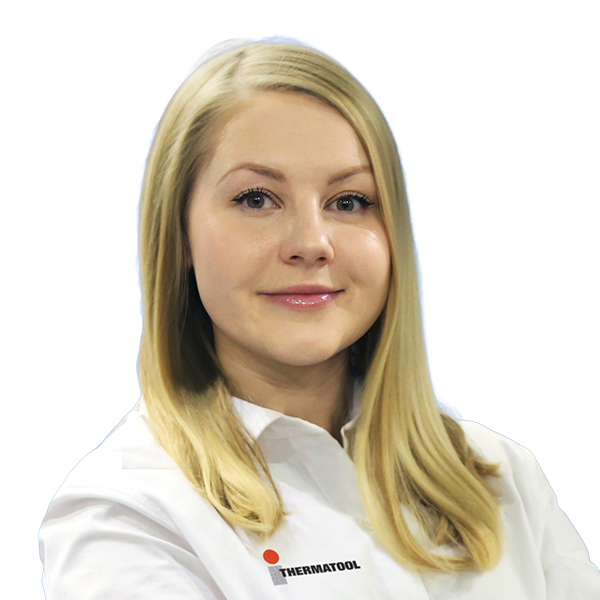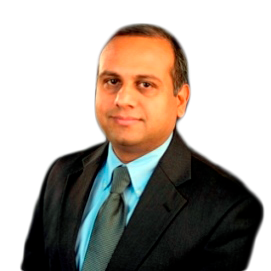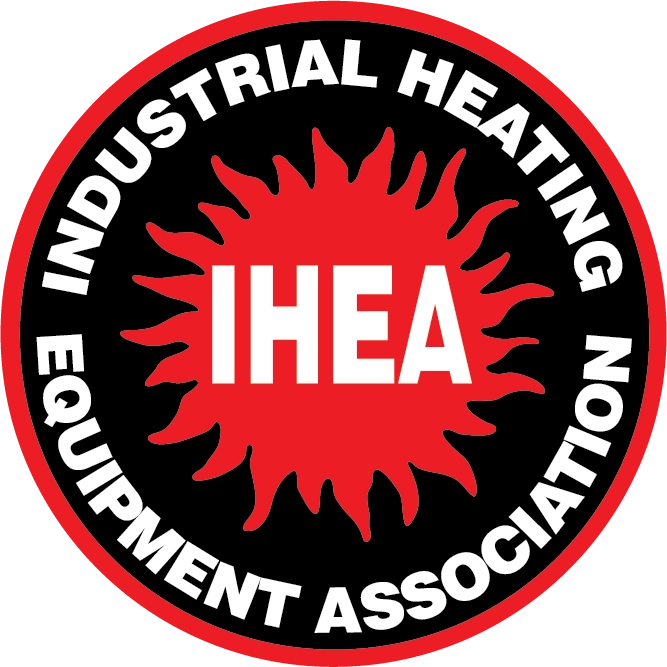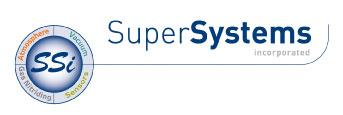THE SUMMIT PROGRAM TOPICS & SESSIONS
The Energy-Carbon Connection
Energy Consumption and the Resulting Carbon Emissions
If you consume energy at your site, then you have carbon related greenhouse gas (GHG) emissions. This session will show the connection of energy consumption and its related GHG emissions. This important information will be the foundation for the rest of the SUMMIT programming.

Jeff Rafter
VP of Sales & Marketing Selas Heat Technology Company
Carbon Footprint - Purdue Carbon Emission Estimation Tool
Gas carburizing is a critical heat treatment process used to enhance surface hardness and wear resistance in steel components. However, carburizing is highly energy-intensive, with substantial greenhouse gas (GHG) emissions arising from high-temperature heating, prolonged cycle times, and dependence on natural gas for both process heat and furnace atmosphere control. Stricter international policies and the limited resolution of existing life cycle tools and databases make emissions benchmarking and technology comparison challenging. To address this gap, the PHTC has introduced a carbon emission estimation framework developed at Purdue University to evaluate energy consumption and the environmental impact of industrial gas carburizing using Life Cycle Assessment (LCA). This session will share the framework with the audience.

Lakshmi Srinivasan
Graduate Research Assistant Purdue Heat Treat Consortium
Pathways to Decarbonization
Induction Heating – Contributing to CO2 Neutrality
The steel industry is the second largest industrial emitter of CO2 worldwide. One alternative solution for CO2 reduction is induction for heating processes while using green energy. The process is dynamic, easily controllable and if green energy is used, almost CO2-neutral. Due to the direct energy input into the material, induction heating is a good complementary extension of existing gas furnaces for reheating. The induction furnace can be positioned complementarily upstream or downstream in the process. Both variants enable a reduction of the gas consumption and will lead to a measurable CO2 reduction in the reheating process.

Till Schreiter
CEO/Geschaftsfuhrer ABP Induction
Optimizing Energy Management
This presentation will explore innovative strategies for enhancing energy efficiency and effective energy management in industrial heating processes. By leveraging advanced heating technologies and comprehensive energy management strategies, industries can significantly reduce their carbon footprint while optimizing operational costs. Real-world examples will highlight successful implementations and the resulting economic and environmental benefits. Attendees will gain actionable insights into adopting these practices to drive sustainable industrial growth.

Scott Bishop
Sr. Technical Executive EPRI
CASE STUDY: A Business Case & Planning to Reduce Carbon Footprint
NUCOR has a variety of ways to help customers achieve their sustainability goals. This presentation will walk you through the process of working with customers, how to keep sustainability efforts moving along, create a realistic timeline for goals, and some examples of customers who have been improving their sustainability and reducing carbon emissions. We’ll also touch on information on NUCOR’s recycling and how that fits in with sustainability, too.

Scott Meredith
Commercial Manager - Sustainability NUCOR Corporation
Improving Efficiency for Reduced CO2
Reducing Fuel Consumption & the Impact of Automation & Controls
We’ll take a deep dive into combustion process efficiency by looking at the latest technologies and applications for combustion burners, combustion control systems, and other associated equipment. This session will provide you with information about how to wring every drop of waste out of your combustion processes which will optimize your efficiency and reduce your related carbon emissions.

Brian Kelly
Applications Engineering Manager Honeywell Thermal Solutions

Keenan Cokain
Manager - Corporate Sales and Applications Bloom Engineering Co., Inc.
Oxyfuel Combustion Efficiency and H2 Combustion Present and Future
This presentation will cover the current reasons and applications for hydrogen combustion, what the mode and supply changes and challenges from natural gas look like, and what type of time frame until hydrogen as an industrial combustion fuel feasible. We will discuss supply mode challenges, supply demand challenges, and some installation code requirements.

Jason McHood
Principal Application Engineer Airgas
CASE STUDY: Sustainability in the Forging Industry
This presentation provides an overview of decarbonization and sustainability activity in the forging industry including new technologies, best practices, and challenges to overcome.

Dekland Barnum
Technical Director Forging Industry Association
Alternatives to Fossil Fuel Combustion
CASE STUDY: Application Review of Hydrogen Fired Installations
This presentation will review various applications of burner systems and equipment installations designed to be fired on 100% hydrogen, mixtures of hydrogen and natural gas, or alternately back to 100% natural gas in some cases. Applications from Europe and Canada will be discussed.

Brian Kelly
Applications Engineering Manager Honeywell Thermal Solutions
Alternate Low-Carbon Fuels
In this presentation you will learn about FLOXonia, a publicly funded cooperation project between WS Wärmeprozesstechnik GmbH and the Department for Industrial Furnaces and Heat Engineering at the RWTH Aachen University (IOB). This project aims to develop an innovative heating system for industrial furnaces based on the low-emission combustion of partially cracked ammonia (NH3). The focus is on the prediction of the exhaust gas composition, especially the NOx and N2O emissions. The results help to identify an optimum working range for the combined treatment and heating system.

Christopher Wünning
M. Sc. WS Thermal Process Technologies Inc.
Electrification
CASE STUDY: Siemens Switches to First All-Electric Paint Line
With the goal of reducing natural gas and associated CO2 emissions, Siemens has introduced its first all-electric paint line at its Grand Prairie, TX, Electrical Products facility. This presentation will walk you through the process of making the decision to move to all-electric, the steps it took to design and install the system and most importantly, discuss how they’ve reduced the facility’s gas consumption by more than 90%. Much thought and planning went into the development of this system. While ensuring that the new paint line maximized energy efficiency, other aspects of the process, including powder chemistry, heat reuse, and material characteristics were trialed for improved efficiency, too. Bring your questions and get answers on the innovations that can impact many industries.

Julian Capriles
Manufacturing Project Mgr. Siemens

Aaron Hughes
Executive Vice President GAT Finishing Systems
CASE STUDIES: Decarbonization Through Electrification: Real Results with Induction Inductotherm Group
Induction technologies are accelerating the shift to fossil-free manufacturing by enabling full or partial electrification of thermal processing across multiple industries. In this session, real-world case studies will be presented demonstrating how induction has replaced gas-fired systems in steel, automotive, and other manufacturing environments to reduce carbon emissions, improve energy efficiency, and deliver better process control. Examples will include induction re-heaters in steel rolling mills, high efficiency melting in micro mills, and heating and welding solutions for automotive components. Attendees will learn how scalable, electric-powered systems can support sustainability goals, whether applied as standalone solutions or integrated into existing operations.

David Cernava
Sales Engineer Inductotherm Corp.

Aaron Goodwin
Business Development Engineer Inductoheat, Inc.

Sasha Tupalo
Manager – Thermatool Labs Thermatool Corp
Resources & Programs
Overcoming Material Sustainability Challenges
Assessing environmental impacts within the materials selection process has never been more important. It’s often a struggle to find accurate, comprehensive data on materials. This presentation will discuss the various stages of a product’s life as it contributes to overall carbon footprint and provides a module designed to give turnkey access to organizations who need to work with materials that have sustainability as the focal point.

Mariagrazia Vottari
CTO Total Materia
CASE STUDY: Sustainability Processes in Heat Treating
This presentation explores sustainable innovations in heat treating, focusing on nitrogen steels as a decarbonization strategy, ultra-fast quenching for energy efficiency, and advanced nitriding for green energy applications. These approaches demonstrate practical pathways to reduce environmental impact while enhancing materials performance.

Thomas Christiansen
Director, Center for Heat Treating Excellence (CHTE) WPI
Reaching Net-Zero
Reducing, Converting and Trading to Get to Zero Carbon
Zero carbon refers to a state in which the total amount of GHGs emitted into the atmosphere is balanced by the amount removed from the atmosphere or offset through various measures. Achieving zero emissions is a critical component of decarbonization. This presentation will explore options to capture, convert, trade and reduce the carbon footprint in process heating.

Sandeep Alavandi
Program Manager GTI Energy
State of Adoption
Don’t Forget State, Local & Global Policies!
When we think of decarbonization, we often think of Federal policies and mandates. But it’s also important to consider state policies and potential mandates. States can use different approaches to promote solutions that will help reach climate goals while supporting an innovative industry. This presentation will provide an overview of strategies across different time horizons, from immediate support (grants & incentives), to intermediate action (policy support), to long-term drivers (emissions regulations). This presentation will also include a deeper dive on a few states – California, Colorado, and New York – to see how these ideas play out. Collaboration between state agencies, utilities, solutions providers, industrial end users and other organizations is critical to implement solutions that improve efficiency, reduce emissions and energy use, and provide benefits to surrounding communities. Finally, we’ll look at the overall national landscape for firms with a portfolio of plants across the country and additional support needed to build a robust industrial sector.

Scott Bishop
Sr. Technical Executive EPRI
Powering Decarbonization: Preparing the Grid for Widespread Electrification
As industrial sectors pursue deep decarbonization through electrification, utilities face a surge in demand from EV fleets, data centers and heat pump systems. Meeting this demand is complicated by aging infrastructure, load growth that often outpaces upgrade cycles and the need for faster, more flexible interconnections. This talk will highlight how Southern Company, one of the nation's largest energy providers, is proactively planning across its generation fleet, transmission and distribution systems, and demand-side programs to support a reliable, resilient and low-carbon energy future.

Ibrahim Ahmed Ph.D.
Research Engineer Sr. Southern Co. Services Inc.
CASE STUDY: Product Carbon Footprint Estimation: Industrial Bearings
You will learn about product carbon footprint calculation for global bearing manufacturing, specifically focused on process steps which involve heating of the product, including steel making, heating for forging, in-process heat treatment, and final heat treatment. These will be compared with other major process steps.

Scott Hyde
Sr. Scientist Materials R&D Timken
Environmental Risk Communication for the Thermal Process Industry
Presentation sponsored by Heat Treat Today
If you manage environmental issues for your company, it’s not a matter of if, but when you will be faced with risk communication challenges. Planning to meet these challenges means more than preparing for emergencies and dealing with contentious issues. With public trust on the decline and ever-changing news dynamics, successful strategy increasingly relies on solid foundational principles. Key principles will be explored along with practical advice and hard-hitting, real-world examples and solutions in this overview of environmental risk communication focused on the thermal processing industries.

Anthony Sadar
Certified Consulting Meteorologist Environmental Science Communication, LLC and Geneva College
Finding Grants and Funding Sources
Many of the ways to reduce your carbon emissions require financial commitments to start and maintain the process. This presentation will provide an update on federal and state funding for decarbonization projects as well as providing information on grants and incentives to fund the activities associated with decarbonization investments such as training and assessments. A case study will be offered showing how a company undertaking a decarbonization project can “stack” grants and incentives to support a greater percentage of project costs.

Micki Vandeloo
President Lakeview Consulting
Decarbonization Implementation Panel
Practical Examples and Discussion of Companies Leading Decarbonization
Panel Discussion
 Panelist
Panelist
Julian Capriles
Manufacturing Project Mgr.
Siemens
 Panelist
Panelist
Aaron Hughes
Executive Vice President
GAT Finishing Systems
 Panelist
Panelist
Scott Hyde
Sr. Scientist Materials R&D
Timken
 Panelist
Panelist
Chad Spore
Materials Engineering Manager
John Deere

Julian Capriles
Manufacturing Project Mgr. Siemens

Aaron Hughes
Executive Vice President GAT Finishing Systems

Scott Hyde
Sr. Scientist Materials R&D Timken

Chad Spore
Materials Engineering Manager John Deere




